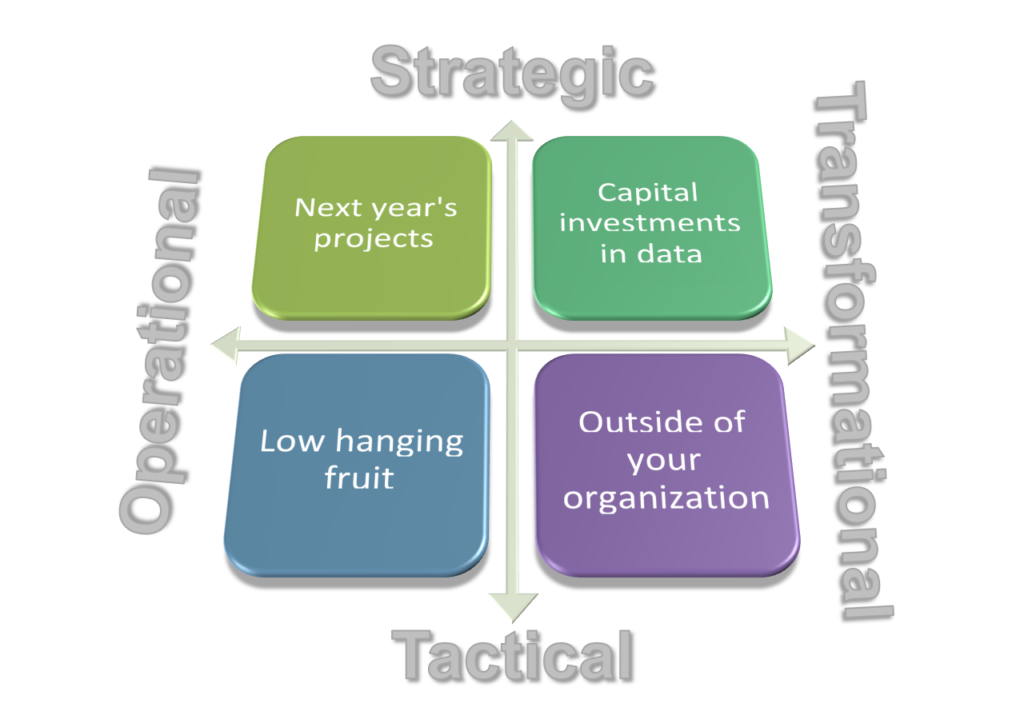10 Reasons You Don’t Need a Data Strategy
Gam Dias

Organizations are recruiting and appointing Chief Data Officers to develop new data driven cultures and business-driven analytics programs, but sometimes having that person can be vastly overrated, not to mention an unnecessary expense for the organization that already has a CIO, CTO and Head of BI and Analytics. Here are 10 reasons to eliminate that role and the strategic view of data they might impose on your organization.

Operational / Tactical
1) Your community of business users are satisfied with the reports and analysis that they have today, there are no current plans to put in new transactional applications.
2) You have your information security processes and infrastructure covered and you are able to anticipate new threats as they occur.
3) You’ve been able to anticipate the privacy regulations and data that you collect and store is for specific reasons, and you have been diligent in obtaining user permissions.
Operational / Strategic
4) Your systems roadmap has provisioned for data management infrastructure, in terms of storage, pre-processing, data availability, master data management, and your organization has the knowledge and skills to plan and manage the organization’s data.
5) The data pipelines to acquire, share, transfer data between departments and divisions, maintaining consistency to provide accurate and up to date information for decision making.
Transformational / Tactical
6) You are able to use consented first or zero party data to understand your customers and have a rich dialog with them at scale
7) You are able collaborate with your supply and demand chain partners, and securely share data and insights with them that provides mutual benefits
Transformational / Strategic
8) Your organization, from analysts to senior leadership recognize data as a strategic asset of the organization and is prepared to make investments in data skills and infrastructure
9) Strategic data projects are treated as Capital Expenditure and are required to compete for investment against other strategic projects such as plant and facilities
10) Data is actually driving shareholder value and is being recognized by the Board as key to the organization’s future success.
Don’t Offer Privacy, Build Relationships Instead
Gam Dias
Last week’s WhatsApp-Facebook data sharing announcement prompted a flurry of contacts to join me on the secure messaging platform, Signal. Mainstream documentaries, movies and books are waking c...
Agile Minds in Desperate Times
Gam Dias
The COVID-19 pandemic is already putting businesses to the test. Business and technical agility is key to surviving the impending economical downturn. The lessons that are being learned will be the ma...

